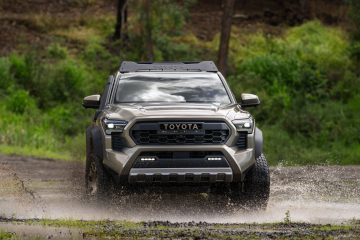After a long search you’ve finally found the perfect car. One problem: the car is located on the other side of the country. This is a common scenario, even more so for those of us that don’t live in areas with large numbers of people. It has gotten a lot easier to find the exact vehicle you want with the options and pricing you want, but that dream car may be located across the country.
That’s not always a bad thing. Buying exactly what you want at a price you can afford can be worth the trouble of either shipping or driving that vehicle home from wherever it was purchased. There are, however, several things to consider before getting on a plane and planning to drive the new vehicle cross-country. In this post, we’ll look at the important issues to consider when buying a vehicle out of state.
Vehicle Condition

A picture can speak a thousand words, none of which will tell you the last time the vehicle you’re looking at had an oil change. Those artfully produced photos will also not help determine the condition of the vehicle under the paint – have there been repairs done to bodywork, suspension components, or drivetrain? This doesn’t mean that all online sellers are out to unload lemons on unsuspecting buyers, but it does mean that buyers have a responsibility to ensure the car they’re buying is in the condition they think it is.
Since you will be traveling to an area that may not be familiar to you, do some research on garages and repair shops ahead of time. Dealerships are also a great option to have the vehicle checked out and may be the best choice if you’re looking at a European car or a more obscure model. Private sellers should have no problem allowing the vehicle to be inspected by a local shop, especially on the buyer’s dime. While it’s true this is yet another expense in your journey to buying the vehicle, the cost of having it checked out pales in comparison the potential costs of driving away in a ticking time bomb of maintenance headaches.
Taxes
No matter where you purchase your vehicle, you’re probably going to end up paying taxes somewhere. People may try to avoid this hassle by purchasing in states where there are no sales taxes (live free or die, New Hampshire!), but the pain is only delayed until the registration process begins. Dealerships help handle this process before you leave, but private sellers are under no obligation to worry about how the taxes are handled.
Registration

If you’re buying a vehicle and planning on driving it home, registration (or lack thereof) will be one of the most important things to plan around. Dealerships have temporary tags to let everyone know that you didn’t steal the car, but private usually don’t. You’ll need to be sure that the person actually owns the vehicle you’re buying and obtain the necessary paperwork to transfer ownership. In some cases, the seller may allow you to drive home with their license plates, but it’s not a risk everyone is willing to take.
Insurance
This one sounds like a no-brainer but can cause a real headache if not done right. Most people will think of setting up insurance just as they’re about to buckle up and drive off. That’s a mistake, because trying to nail down the details of a new insurance policy after you’ve flown or driven a long way and then negotiated a vehicle purchase is a bad idea. It’s true that insurance policies can be changed after the fact, but it’s much better to plan ahead.
Doug DeMuro makes a good point in this AutoTrader post, noting that purchasing insurance before you even get on the plane or drive to purchase the vehicle is the way to go. There’s always the possibility that something will go awry with the deal and you’ll be out a few days of insurance money but having everything taken care of ahead of time is worth the risk.
Transportation

That Mazda Miata you just bought is awesome, but is it awesome enough to drive 1,500 miles back home through all kinds of weather and road conditions? The wear and tear of driving a vehicle cross-country is worth considering, especially if it’s valuable or an antique. It may also be that the time and effort of driving a vehicle home isn’t in the cards.
If a road trip in your newly-purchased vehicle isn’t something you’re able or excited to do, shipping is a common and safe way to transport it long distances with little effort on your behalf. Several companies offer open- and closed-truck shipping, rail shipping, or ship-shipping (I know), along with insurance to keep your investment safe. We wrote an in-depth article on vehicle shipping that lists several options.
(Article continues below)




